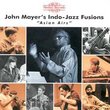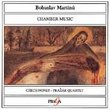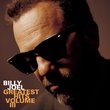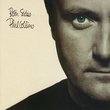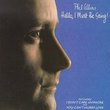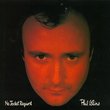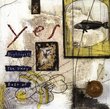| All Artists: Paul McCartney, London Symphony Orchestra Title: Paul McCartney: Standing Stone Members Wishing: 0 Total Copies: 0 Label: EMI Classics Release Date: 9/23/1997 Genres: Pop, Rock, Classical, Classic Rock Styles: Opera & Classical Vocal, Symphonies, Album-Oriented Rock (AOR) Number of Discs: 1 SwapaCD Credits: 1 UPCs: 724355648426, 724355648440 |
Search - Paul McCartney, London Symphony Orchestra :: Paul McCartney: Standing Stone
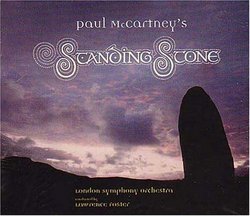 | Paul McCartney, London Symphony Orchestra Paul McCartney: Standing Stone Genres: Pop, Rock, Classical, Classic Rock
|
Larger Image |
CD DetailsSimilar CDs
Similarly Requested CDs
|
CD ReviewsIf music were... C. Cleveland | Dryden, NY United States | 02/05/2003 (5 out of 5 stars) "If music were only a form of high-level mathmatical play, or if it were a game with set rules, the violation of which should and would disqualify you from play, then the task of music critics would be easy. But there are no rules, as far as I can tell: there is only taste in the kind of sounds you can make and call music. What music is actually about is emotion--music is about moving your audience, about touching one or a combination of the spectrum of human emotions. And Paul McCartney has been doing that since he finished the melody to When I'm Sixty-four at the age of sixteen. Now, the form of Standing Stone is a symphonic, or orchestral poem. That means that the music is meant to tell a story, and to me it does. I had been listening to the music in fascination and admiration for at least six months before I read the poem the composer provides to tell the story in another form. The Standing Stone Poem is great fun--you can feel the author relishing the musical qualities of the language as he plays it like an instrument to tell his tale. The tale is about the dawn of everything, including human beings, it is about adventure, peril, triumph, and the joy and serenity that follow bloodless but real victory. The various sections of Standing Stone are chapters in a story told in orchestral and wordless vocal sound until the last section, Celebration, which includes a song with words. So, I sugggest that formal training in music has nothing to do with the quality of a piece of music. Some musicians got together one day and invented rock 'n roll, and they did not have to present diplomas from Juilliard to do it. The symphonic form or lack thereof has nothing to do with the quality of a piece. Having enough confidence to make up a form to fit the musical composition you want to complete *may* have something to do with its quality. I am told by one person knowlegable in music theory that McCartney has been breaking "rules" for a very long time. So, what you are dealing with in Standing Stone and in all other McCartney compositions, is McCartney's taste in sounds. I found the piece mesmerizing, rewarding, and very moving. You may too." Mummy music C. Cleveland | 04/23/2002 (1 out of 5 stars) "The liner notes to Standing Stone" quote Paul McCartney in an hilarious "This is Spinal Tap" vein: "At some point somebody told us that the Pharaohs didn't write, but that they employed people to do the job for them. That cheered us up immensely, since that's exactly how we worked." (At some point someone told us Marie Antoinette said, "Let them eat cake." This cheered us immensely, since we also wished the populace to enjoy fine pastry.) The antecedent of this "we" is ostensibly the Beatles, but since John Lennon would likely have replied, as was his wont, "I think you're daft," we'd might as well assume it the royal "We". This piece's predecessor, "Paul McCartney's Liverpool Oratorio", was written with a single collaborator, the composer and conductor Carl Davis. (When Mr. McCartney insisted, nevertheless on titling the work "Paul McCartney's Liverpool Oratorio", instead of, more conventionally, "Liverpool Oratorio", Carl Davis vowed never to work with him again.) Here Mr. McCartney relies on an entire TEAM of co-composers, including Steve Lodder, David Matthews, John Harle, and Richard Rodney Bennett, as well as on various pieces of computer software. The result, to cut to the chase, is meandering, insipid, drawn out, simplistic, and tedious. What did you expect?" Journey to a state of wisdom C. Cleveland | Dryden, NY United States | 02/22/2000 (5 out of 5 stars) "Standing Stone is a tremendously focused piece of work, and what it's focused on is the story it has to tell. That story is told in another form in the Standing Stone Poem, an original epic tale marked by a very distinctive tone that combines narrative compression with verbal gusto. One can almost see McCartney up to his elbows in adjectives, throwing them into a bubbling pot on the stove with glee in his eye, and serving the resulting dish to his guests with several flourishes. And this image captures, for me, something of the experience of listening to the music as well. But it is not necessary to read the poem first-- I had been listening to the music in fascination for at least six months before I read the poem. The music itself is action packed and adventure filled, and communicates itself with no wasted gestures. Every note, theme, tempo change, and instrumental color has a purpose, and conveys emotional images which progress from chaos through a magical journey which ends in a resolution which has nothing to do with rest, but with traveling onward in a transformed state. It is a journey through high adventure to a state of wisdom. The theme of the work is how the human capacities for wonder, curiosity, and perseverance can win triumph from the forces of darkness. It is about how victory can be achieved by wits, and courage, and good timing, rather than swords and gore. It is also about what the prize for victory is--about love in peace. McCartney has always been naive in the best sense of the word--neither ignorant nor cynical, but open to experience, willing to be affected. That naivete, combined with his considerable musical ingenuity and exuberance, have produced a series of musical scenes painted with equal delicacy and power, and united by haunting melodies and a strong narrative drive. I have really never heard anything quite like it before, and recommend it to your attention."
|

 Track Listings (19) - Disc #1
Track Listings (19) - Disc #1
